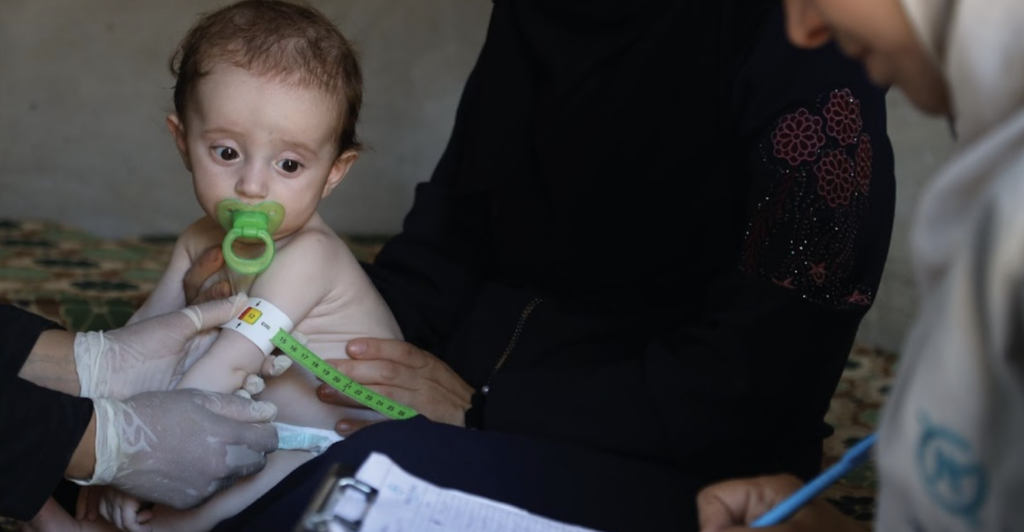Updates & Press
Reports | December 27, 2022
Increasing access to life-saving humanitarian heat
Author | MedGlobalComms

Baseline evaluation report for “Increasing access to life-saving and life-sustaining coordinated, equitable humanitarian heath services for those most vulnerable in need in Syria” Project
1. Executive Summary
This report comprehensively documents the findings and results of a baseline survey which was part of the project “Increasing access to life-saving and life-sustaining coordinated, equitable humanitarian health services for those most vulnerable and in need”. The study was carried out by the MedGlobal Syria office and through funding from The Church of Jesus Christ of Latter-day Saints (LDS). The survey seeks to project the underlying root cause analysis to tackle and mitigate health response challenges in the community and implementation capacities through local community engagement to ensure an inclusive, whole-of-society approach to health system recovery, inter-sectoral collaboration, integrated programming, and proactive engagement with humanitarian stakeholders. The outcome of this baseline study would help in crafting program content for health services in the project area and determine strategies for engaging the beneficiaries to have improved health outcomes for the locals in the region.
1.2. Summary of the findings
The major take away from this study include
- The assessment interviewed 420 sampling units and each unit represented a household using a household questionnaire tool. Of the respondents interviewed 63% were women and 37% were men. The average household size in the region was 6 members per household.
- The Survey found that there was a high prevalence of Non-Communicable Disease (NCD) among the community with the distribution of 242 people with Blood pressure in every 1000, equally Eye disease was also a prevalent common NCD in this region.
- Almost all (91%) of the respondents indicated that they have been sensitized on how to prevent disease outbreaks in their community. However, the level varied in terms of Gender with females showing a higher rate compared to males.
- In all the essential health services that are chargeable at the health facility, the findings paint a picture of a community that is grappling with high costs in accessing health services, as the majority (67%) reported they would afford consultation services while other essential services such as medication, and treatment were less affordable to them.
- There is significant awareness of MedGlobal-supported health facilities in the camps. Overall, 79% are aware of MedGlobal services in the community including the health services it provides which are responding to the local needs of the community.
- There are still major barriers such as institutional, attitudinal, and cultural barriers that play a major role in mothers not giving birth at the hospital. Specifically, the major reason was mostly that the health facility was far away (37%), poor services in the facility (17%), husband objected to them giving birth at the facility (17%), Issue related to shame as no female doctor/Midwife was available to do delivery (10%), customary law being against mothers giving birth at the hospital (10%) and being not able to afford maternal health service (7%).
- The most (35%) community rushes to purchase Over counter drugs (OTC) from the pharmacy as opposed to first seeking medical advice from the health facility.
1.3. RECOMMENDATIONS
- As most of the females in the community seem to be much sensitized on disease prevention by the major health actors in the region, there is a need for MedGlobal to tailor the next disease prevention sensitization with bias towards Men; who will act as a role model to champion for disease prevention in their families.
- Sensitize the community on the need to have them seek health advice rather than self-medication.
- MedGlobal intervention must have specially tailored programs that focus on women and critical women’s health especially in addressing the barrier to health access in the region.
- MedGlobal to continue engaging the services of the community health care workers to reach more population with sensitization messages about disease prevention and more awareness sessions.


